What are the most important VPN features you should look for in a VPN? There’s a lot of money that fuels the VPN market, both in advertisements and in affiliate commissions. It’s hard to know which VPN features are marketing mumbo-jumbo and which are legitimately useful. Let’s take a deeper look at what these are.
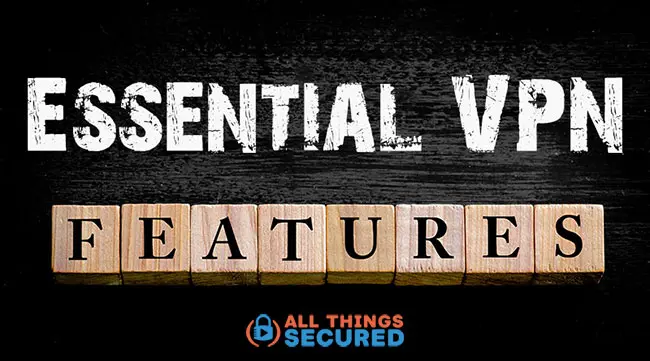
Key Takeaways
- VPN services tend to overhype features in their marketing. Only focus on the features that really matter for your privacy needs.
- Don’t just look at the number of servers a VPN has. Make sure they have servers near your actual location for the best speeds.
- A clear and transparent data logging policy is essential; “no logs” claims are often misleading. Read the privacy policy of the provider before opting in.
- Additional useful VPN features include a kill switch, IPv6 leak protection, and split tunneling, though not mandatory.
Over the past 15 years that I’ve been using a Virtual Private Network, or “VPN”, to encrypt my internet connection, I’ve come to understand the ins and outs of the industry.
As with much of the personal security industry, a lot of the marketing unfortunately feeds on our fears, which results in hyping features that may or may not actually be useful.
I’ve also been using 25+ different VPNs over the last decade, and during that time I’ve come to learn a couple of very important things:
- Which VPN security features do I really value;
- And which features are merely “security theater”;
If you’re in the market for a VPN, take a moment to browse this list of important features.
Use the links below to jump down to the specific section to read further.
Critical VPN Features
Although there are literally hundreds of VPNs on the market today, for the sake of simplicity I’m going to use NordVPN as the example for these sets of features since this is what I’ve been using for the better part of the last decade.
So which VPN features are most important?
Note: Some of the links in this article are afilliate links, which means that at no extra cost to you, I may be compensated if you choose to use some of the services listed here. I only recommend what I’ve personally used, and I appreciate your support!
1. Updated Apps (Desktop & Mobile)
A VPN service is only as good as the apps and software that help you connect. What you need to know is, “Does this VPN keep up-to-date with all of the updates being made to all the different operating systems?”
Does this VPN keep its apps and software up-to-date?
It takes a team of software engineers and plenty of money to make this happen, which is why a lot of VPN services stick with the motto of If it ain’t broke, don’t fix it
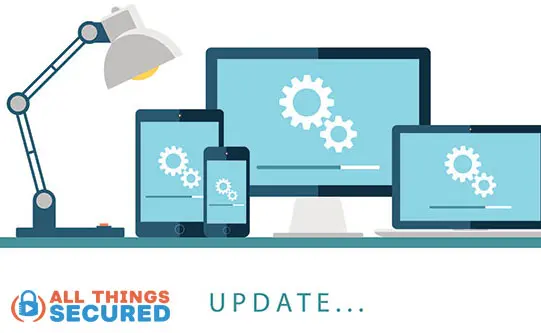
The trouble is that these companies don’t actively advertise how often they update their apps and software.
Sometimes the easiest way to find out is to look a VPN service up on the app store and see when the app was last updated. If it’s been more than a year…
…run away!
The best rule of thumb, and one I’ve noticed that NordVPN does well, is that with every major operating system (OS) update that comes out (i.e. a new Windows OS, an updated Mac OS, or a major mobile update), a new version of the VPN software and apps should be released. If not more.
This is probably one of the most important VPN features on this list.
2. Clear VPN Logging Policy
This particular VPN feature, marketed as a “zero-log” or “no-logging” policy, is the most confusing.
Why do I say that?
Because I know how most VPN services are lying to us (or at least knowingly deceiving us).
When I say a clear logging policy, what I’m not referring to is a headline on the company homepage that says “We Don’t Log ANY Information…We Promise!”.
A blanket “We Don’t Log” statement is not a clear logging policy.
More often than not, any details about the logging policy of virtual private networks will be found on their Privacy Policy page. Some are vague and masked in legal jargon; others can be very clear.
Let’s take ExpressVPN’s Privacy Policy page as an example. In the section titled “VPN Connection Summary Statistics,” it clearly states what data they collect and how they store it.
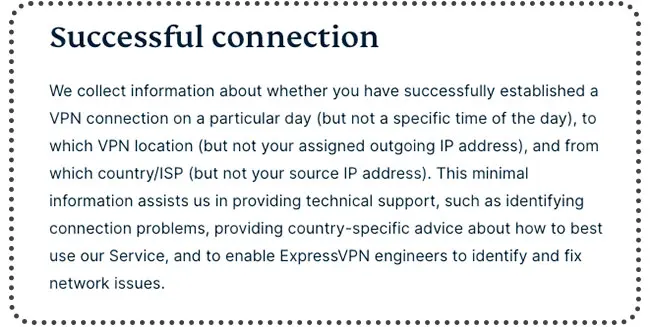
“Wait, what!?” you may be thinking. “How can this be ‘zero-log’?” It’s not, which is why this is such a deceptive marketing practice done by ALL of the VPN companies.
Don’t be fooled by marketing hype.
Read the privacy policy as it relates to the handling of your data.
3. Instant Customer Support Chat
In my experience, this is one of those critical VPN features that you don’t realize you want until it’s too late. Problems always seem to happen at the most inopportune time, be it a major holiday or in the middle of the night.
You don’t have time to wait 24 hours or more for a response.
It’s becoming more and more common for quality VPN services to offer live chat customer support 24/7. It costs them money, to be sure, but that’s part of what separates a great VPN provider from simply a good one.
Sometimes you’ll find the live chat on the VPN homepage, but you also might need to log into your account to access customer support.
Email support is good, phone support is rare, but live chat is ideal.
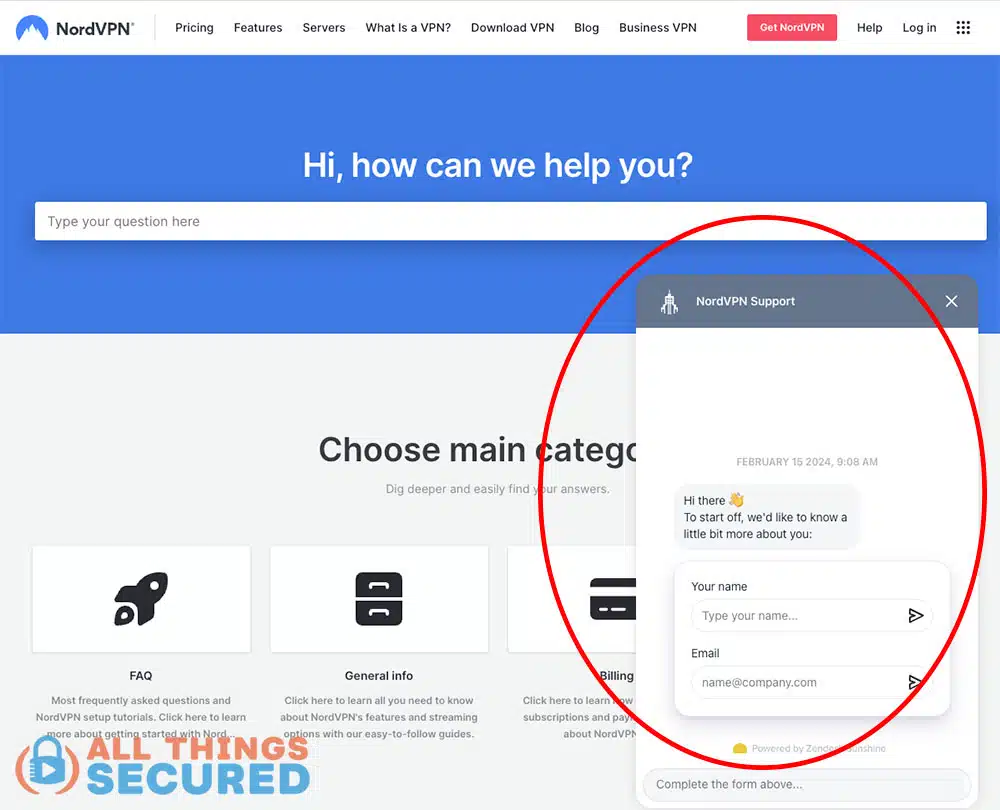
4. Server Options Near Your Physical Location
Having thousands of servers spread across lots of countries is certainly a nice VPN feature…
…but don’t buy all the marketing hype they’re giving you.
A lot of times I find people purchase a VPN service and then complain about their internet speeds. Several different factors could contribute to this, but an easy one is connecting to a server that is physically near you.
Don’t be wowed by big server numbers with VPN providers.
When it comes to server options, check the list or map to make sure that they offer plenty of servers near you.
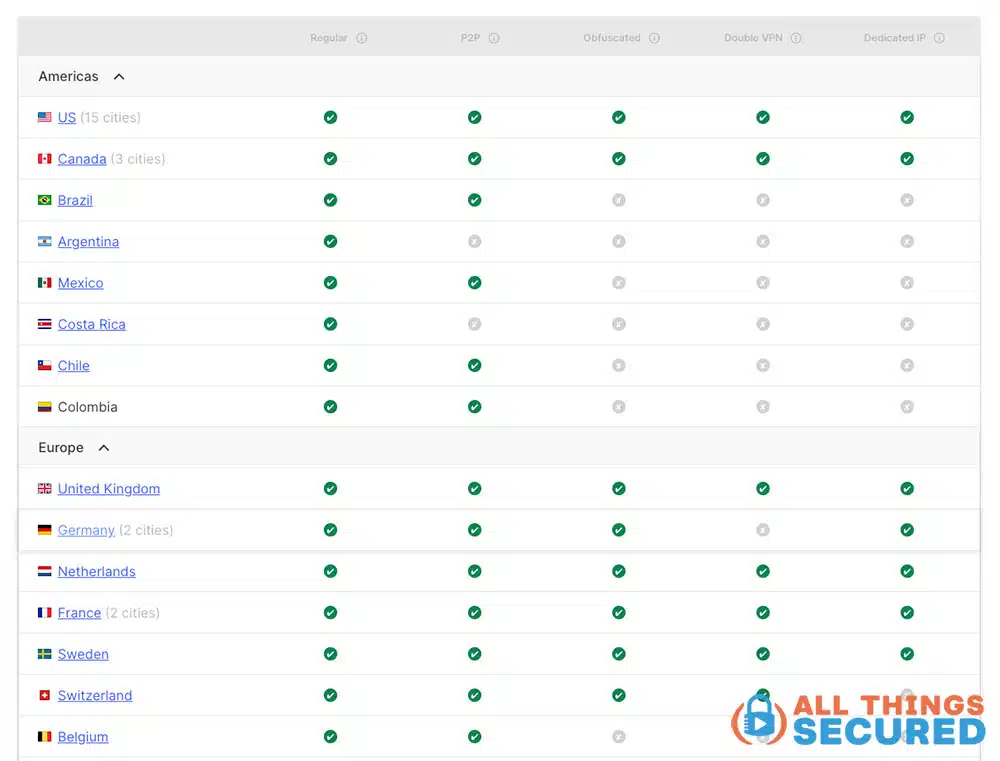
For example, you can look at this server map from ExpressVPN or this server list from NordVPN to see what they offer.
5. SmartDNS Capabilities | VPN Features
Why would you need SmartDNS in addition to a regular VPN connection? There are a couple of reasons that I’ve run into myself, but the biggest is this:
SmartDNS allows you to bypass geoblocking without sacrificing the speed loss of a VPN tunnel.
For example, if I want to stream video content from Netflix in China, I can easily connect to a VPN. However, because a VPN encrypts all data that is sent and received, that slower connection might result in a lot of buffering.
SmartDNS, on the other hand, allows you to access geo-restricted content without encrypting the data (for more info, check out my explanation of what SmartDNS is).
In addition to this, some devices, don’t allow for the installation of a full VPN, so SmartDNS is the only way that you can bypass geo-restriction in these cases.
Not every service offers both a Virtual Private Network and SmartDNS as essential VPN features within the same package.
You’ll have to ask or read the fine print.
6. VPN Kill Switch (aka Network Lock)
If you’ve never heard of a kill switch before, it’s a feature that will cut your devices’ network access if VPN providers somehow get disconnected.
It’s not complicated, but if you want more details, I’ve gone into a deeper explanation of a VPN Kill Switch here
While this is an advanced feature for most users, it’s one worth having in my opinion. This is especially true if you’ll be making a VPN connection over public networks or while transmitting sensitive data.
What you’re trying to do here is ensure that all data entering/exiting your computer is encrypted and protected at all times. Some VPNs call it a “kill switch”. Others call it a “Network Lock”.
7. Split Tunneling VPN Feature (optional)
Split tunneling is a nice little advanced feature that I’m going to list as “optional” just because I haven’t used it as much as I thought I would at first.
The idea of split tunneling with a VPN is to give you the power to control which apps, programs, or even websites access the internet directly and which are pushed through the VPN encryption protocol.
You choose what needs encryption and what doesn’t.
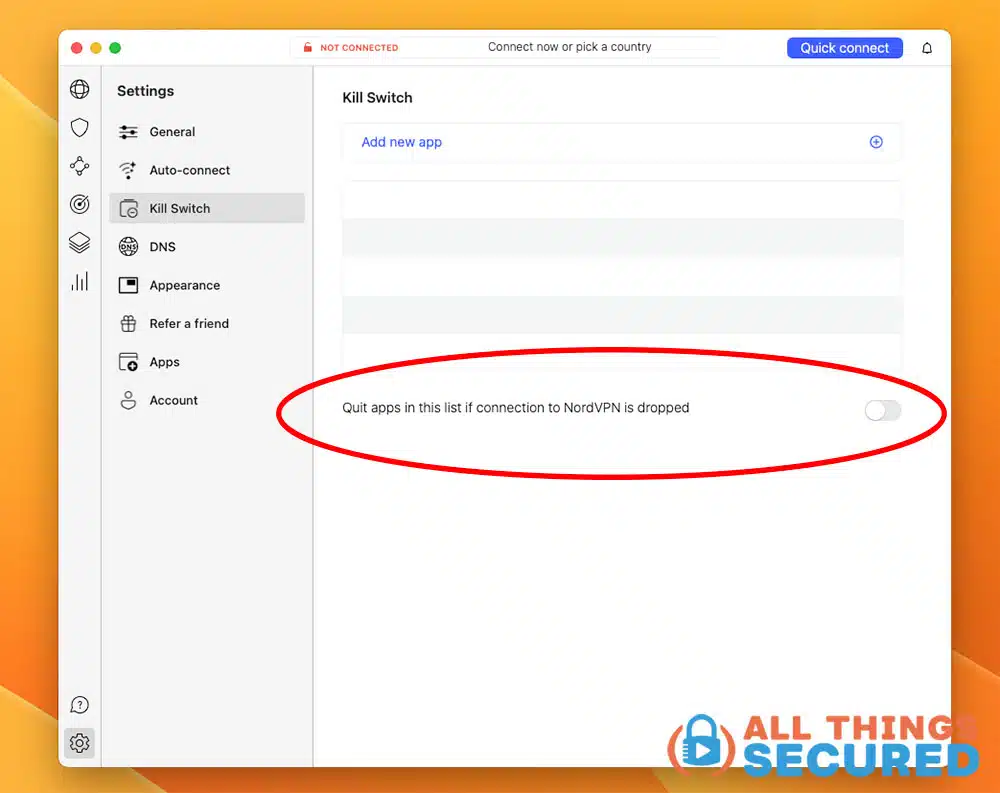
In the case of NordVPN above, you can see that you have the option to choose which apps are subject to the VPN kill switch.
Like I said, it’s a nice feature, but it is optional.
8. Clear Connection Protocol Options
Just like ice cream, VPN connection protocols come in a variety of flavors. Each have their strengths and weaknesses, such as:
- High-security, low-speed protocols;
- Lower encryption key, higher speed protocols;
Most VPNs – but not all – give you the option to choose not only which VPN server you connect to, but also which protocol with which you want to connect.
These connection protocols go by several different names such as “OpenVPN” (learn more about OpenVPN here), L2TP, PPTP, and others.
Many VPNs are now adopting a new, more advanced VPN protocol known as WireGuard.
There are some VPN providers, such as VyprVPN, that even develop their own proprietary protocol that they claim is faster and more secure. VyprVPN calls theirs the “Chameleon Protocol.” (see my full review of VyprVPN here)
No matter which options are provided, make sure the VPN service you select gives you the ability to choose your protocol along with a clear explanation of each.
9. IPv6 Leak Protection (optional)
IPv6 is considered to be the next generation of IP addresses (the address that your device is assigned when connected to the internet).
With so much of the world now contributing to internet traffic and smart devices flooding the market, IPv6 was the solution to the problem of the world running out of these IP addresses.
The truth is the IPv6 leaks aren’t a big threat to your online security, which is why I list this VPN feature as “optional.” However, there are times when a VPN connection could leak your real location if they don’t handle IPv6 requests, and leak protection for your IP address is the answer.
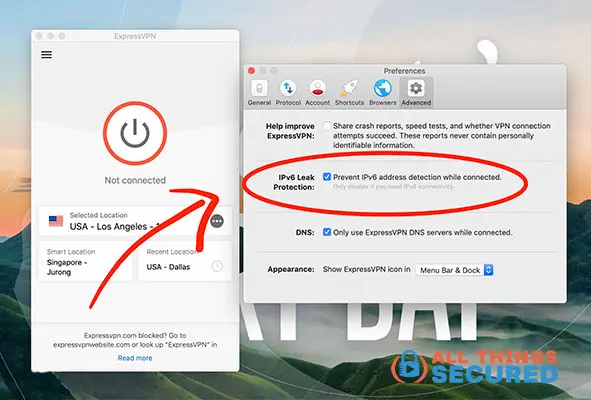
For most VPNs, including ExpressVPN that you see above, IPv6 leak protection of IP addresses is listed under Advanced Settings as a simple check box.
Simply check the box and your IP address will be better protected.
10. Defined Simultaneous Connections
More than likely, you’re going to be connecting to a VPN service on more than one device. This includes devices such as your:
- Computer…
- Mobile phone…
- Tablet computer…
- SmartTV…
- Media streaming devices…
- Wife’s devices…
- Family devices…
- Etc., etc.;
It’s important to understand how many simultaneous connections a VPN allows you to have before signing up. You can have the software installed on as many devices as you want, but there is a set number of devices that can connect to the VPN servers at the same time.
There is no standard here. For example, NordVPN offers six (6) simultaneous connections while ExpressVPN allows you five (5) simultaneous connections.
Honesty, I’ve been perfectly fine with a VPN that offers only three, but you need to check what’s best for you and your family.
11. Easy VPN Router Configuration
If you’re looking at the simultaneous connections and thinking to yourself, “That’s great, but how will I use my VPN service on IoT devices that can’t download these apps?”
This is where it’s important to choose a VPN that can easily be installed on your router.
The problem is, that not all VPN services offer easy-to-configure connections to a VPN server. It can be confusing to set up and difficult to maintain. Some companies offer specific router downloads and others like ExpressVPN even have their own router that’s plug-and-play.
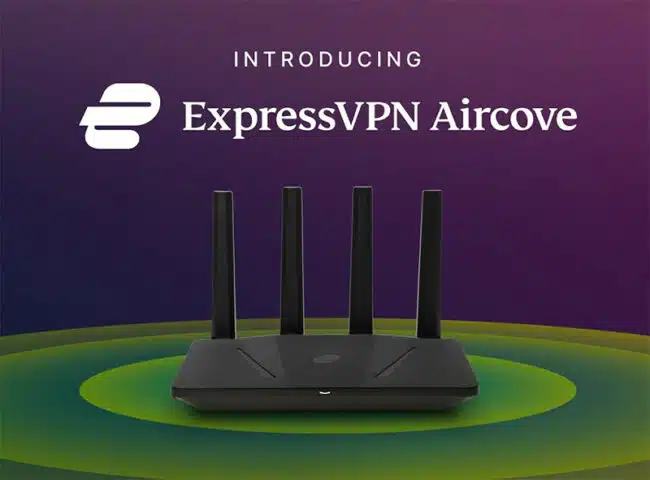
It’s certainly possible to use any VPN service on a router that allows for VPN configurations (not all of them do), but it’s important to consider whether you want to make this easier or harder for yourself. This is especially true if you want to be able to change your IP address or which VPN server your router is connected with.
Final Thoughts: What to Look for in a VPN
There are some features I’ve left off of this list, the most obvious of which is pricing. I don’t really consider that a “feature,” though, since every service has to have a pricing.
That is unless it’s a free VPN – which I don’t recommend using.
As you shop around for the best VPN service for your needs, keep this list of essential VPN features handy. Compare them against what you see on their website.
Not every VPN client will carry each of these essential features – in which case I recommend you keep looking around. If privacy and online security are a priority for you, you’ll want to have these features available to you.
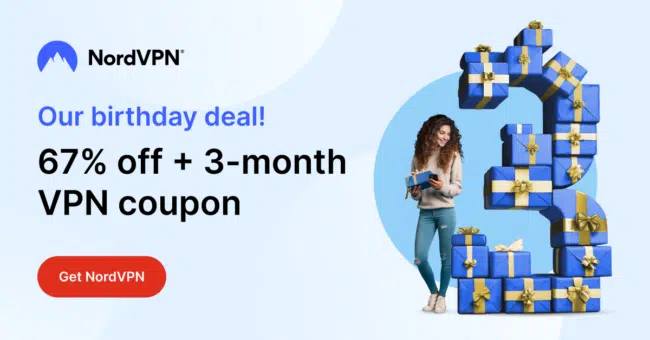

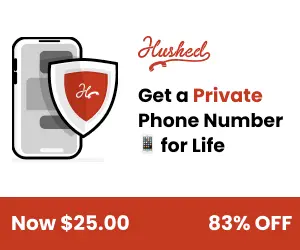
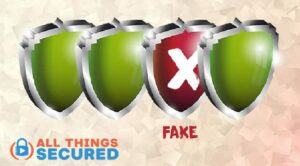
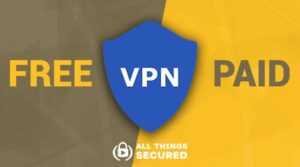
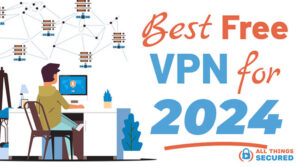
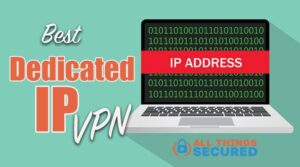
Thanks for the ideas, Fred! I’ll definitely take that into consideration.
Please sir.
All the above recommend vpn even in tanzania can be used?
HELp ME.
Thank you.
Yes, they’ll work even in Tanzania.
Thanks for the idea. I’ll put that in an update.